"PM or president will now conduct Kosovo talks"
The continuation of the dialogue with Priština will be conducted on a higher state level, says chief government negotiator Borislav Stefanović.
Wednesday, 20.06.2012.
14:44

The continuation of the dialogue with Pristina will be conducted on a higher state level, says chief government negotiator Borislav Stefanovic. This means that they will be done by the president or the future prime minister, he told a news conference in Belgrade on Wednesday. "PM or president will now conduct Kosovo talks" The technical dialogue with Pristina has yielded "very concrete results", he continued, adding that "now political issues are to be considered, such as northern Kosovo, protection of Serbs south of the Ibar, the status of Serb churches and proprerty". The EU-sponsored Kosovo dialogue has been ongoing since March 2011, and represents first direct talks between Belgrade and Pristina since ethnic Albanians in early 2008 unilaterally declared independence, and Serbia rejected that proclamation as illegal. Now the negotiator - appointed by the outgoing government - noted that it was "good that President Tomislav Nikolic took the initiative on the Kosovo issue", but stated that he would "have to work with a new government on this, because issues that require a consensus in Belgrade will now be considered". Stefanovic also criticized EU mediator in the dialogue Rober Cooper - who is today visiting Belgrade - to say that he was "now interpreting some agreements the way it suited Pristina, although that was not the case during the talks in Brussels". The negotiator specified that he had the agreement ton regional representation of Pristina in mind, and added that he would meet with Cooper later in the day. Borislav Stefanovic is seen during the news conference on Wednesday (Tanjug) "Interlocutors were informed verbally" Borislav Stefanovic also addressed reports that Serbia will be required by the EU to open an office in Pristina - to say that this was "never mentioned": "It was never mentioned in the negotiating process, nor did we ever receive any information of that kind. If someone did, let them say who they received it from." Apart from media reports, Deputy PM and Interior Minister in the outgoing government Ivica Dacic mentioned this alleged new EU condition on several occasions. As for the plan of the Kosovo Albanian government in Pristina to open its office north of the Ibar River - where Serbs are a majority and reject its authority - and demands that came from the German chancellor for Serbia's institutions to be shut down in that region, Stefanovic said that Serbia "cannot create an institutional vacuum there", and added that the country also "cannot make unconstitutional moves". A new government and the president will have to declare themselves on these issues, said the negotiator. Asked why one of the agreements reached during the dialogue - that on freedom of movement - did not specify that it was not valid in the north, Stefanovic said that if that were the case, "Pristina would then brutally force Serbs south of the Ibar (in isolated enclaves) to take Kosovo license plates". Instead, he continued, interlocutors in Brussels were "verbally informed" that the agreement "cannot be implemented in northern Kosovo where Serbs are a majority". Asked by reporters if this move of his obligated any party not to implement the agreement in the north, Stefanovic responded by saying that "it did not": "The barrier for the implementation of the agreement in the north is the situation in the field," said he, and appraised the agreement in question as having its "shortcomings", yet being "the only possible". Elusive footnote Stefanovic noted during his news conference that EU's Robert Cooper was coming to Belgrade "to explain his interpretation of certain agreements from Brussels, primarily the one on Kosovo's regional representation". His interpretation, as Stefanovic put it, was "diametrically opposite to the one of Belgrade and in line with Pristina's interests". "Belgrade will implement the agreement only when the document is institutionally regulated in a manner agreed, which means that Kosovo's name has to be followed by the entire text of the footnote," he stated. The footnote says that Kosovo is represented without prejudice to its status, based on Resolution 1244 and advisory opinion of the International Court of Justice. the full text of the agreement Stefanovic pointed out that after Cooper's contrary interpretation, "it turns out that the issue of regional representation is not resolved, since it was agreed that an asterisk on Kosovo's nameplate be followed by the full text of the footnote". "Unfortunately, the agreement was interpreted in accordance with Pristina's interest, in that it does not specifically say where the footnote should be written," the negotiator continued. "If it (the agreement) does not say that the footnote is on the nameplate, does that mean it says the footnote is in documents, like Cooper claims? Where is the footnote then?” wondered Stefanovic. (Tanjug) New issues In its report, the Tanjug news agency highlights Stefanovic's remarks that Serbia "will soon have to face issues such as the area code for Kosovo and opening offices of Pristina in Belgrade, and of Belgrade in Pristina". "These are the issues that await us," he said. He emphasized that these were not part of the dialogue so far - "but will certainly be future topics". Stefanovic said that, in connection with the area code for Kosovo, Belgrade's position that it can only be a sub-code of the Republic of Serbia, while for Pristina it is important that it be completely different. These are issues that we have to face and have not yet opened, Stefanovic said. Stefanovic also said that the previous rounds of dialogue focused on energy and telecommunications, but no agreement reached. Beta Tanjug
"PM or president will now conduct Kosovo talks"
The technical dialogue with Priština has yielded "very concrete results", he continued, adding that "now political issues are to be considered, such as northern Kosovo, protection of Serbs south of the Ibar, the status of Serb churches and proprerty".The EU-sponsored Kosovo dialogue has been ongoing since March 2011, and represents first direct talks between Belgrade and Priština since ethnic Albanians in early 2008 unilaterally declared independence, and Serbia rejected that proclamation as illegal.
Now the negotiator - appointed by the outgoing government - noted that it was "good that President Tomislav Nikolić took the initiative on the Kosovo issue", but stated that he would "have to work with a new government on this, because issues that require a consensus in Belgrade will now be considered".
Stefanović also criticized EU mediator in the dialogue Rober Cooper - who is today visiting Belgrade - to say that he was "now interpreting some agreements the way it suited Priština, although that was not the case during the talks in Brussels".
The negotiator specified that he had the agreement ton regional representation of Priština in mind, and added that he would meet with Cooper later in the day.
"Interlocutors were informed verbally"
Borislav Stefanović also addressed reports that Serbia will be required by the EU to open an office in Priština - to say that this was "never mentioned":"It was never mentioned in the negotiating process, nor did we ever receive any information of that kind. If someone did, let them say who they received it from."
Apart from media reports, Deputy PM and Interior Minister in the outgoing government Ivica Dačić mentioned this alleged new EU condition on several occasions.
As for the plan of the Kosovo Albanian government in Priština to open its office north of the Ibar River - where Serbs are a majority and reject its authority - and demands that came from the German chancellor for Serbia's institutions to be shut down in that region, Stefanović said that Serbia "cannot create an institutional vacuum there", and added that the country also "cannot make unconstitutional moves".
A new government and the president will have to declare themselves on these issues, said the negotiator.
Asked why one of the agreements reached during the dialogue - that on freedom of movement - did not specify that it was not valid in the north, Stefanović said that if that were the case, "Priština would then brutally force Serbs south of the Ibar (in isolated enclaves) to take Kosovo license plates".
Instead, he continued, interlocutors in Brussels were "verbally informed" that the agreement "cannot be implemented in northern Kosovo where Serbs are a majority".
Asked by reporters if this move of his obligated any party not to implement the agreement in the north, Stefanović responded by saying that "it did not":
"The barrier for the implementation of the agreement in the north is the situation in the field," said he, and appraised the agreement in question as having its "shortcomings", yet being "the only possible".
Elusive footnote

His interpretation, as Stefanović put it, was "diametrically opposite to the one of Belgrade and in line with Priština's interests".
"Belgrade will implement the agreement only when the document is institutionally regulated in a manner agreed, which means that Kosovo's name has to be followed by the entire text of the footnote," he stated.
The footnote says that Kosovo is represented without prejudice to its status, based on Resolution 1244 and advisory opinion of the International Court of Justice.
the full text of the agreement
Stefanović pointed out that after Cooper's contrary interpretation, "it turns out that the issue of regional representation is not resolved, since it was agreed that an asterisk on Kosovo's nameplate be followed by the full text of the footnote".
"Unfortunately, the agreement was interpreted in accordance with Priština's interest, in that it does not specifically say where the footnote should be written," the negotiator continued.
"If it (the agreement) does not say that the footnote is on the nameplate, does that mean it says the footnote is in documents, like Cooper claims? Where is the footnote then?” wondered Stefanović.
New issues
In its report, the Tanjug news agency highlights Stefanović's remarks that Serbia "will soon have to face issues such as the area code for Kosovo and opening offices of Priština in Belgrade, and of Belgrade in Priština"."These are the issues that await us," he said.
He emphasized that these were not part of the dialogue so far - "but will certainly be future topics".
Stefanović said that, in connection with the area code for Kosovo, Belgrade's position that it can only be a sub-code of the Republic of Serbia, while for Priština it is important that it be completely different.
These are issues that we have to face and have not yet opened, Stefanović said.
Stefanović also said that the previous rounds of dialogue focused on energy and telecommunications, but no agreement reached.














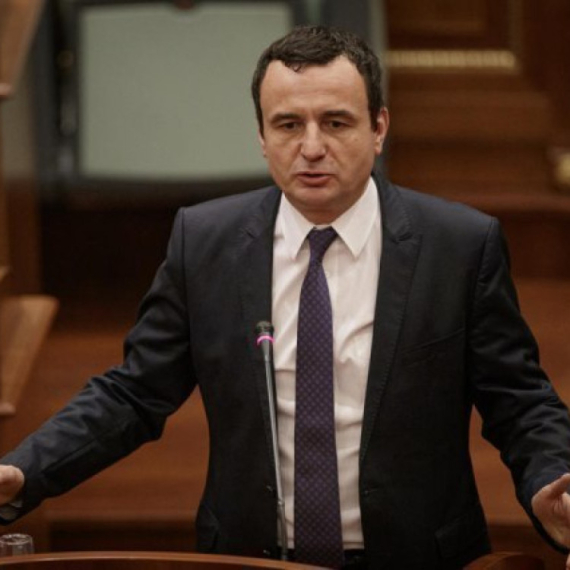
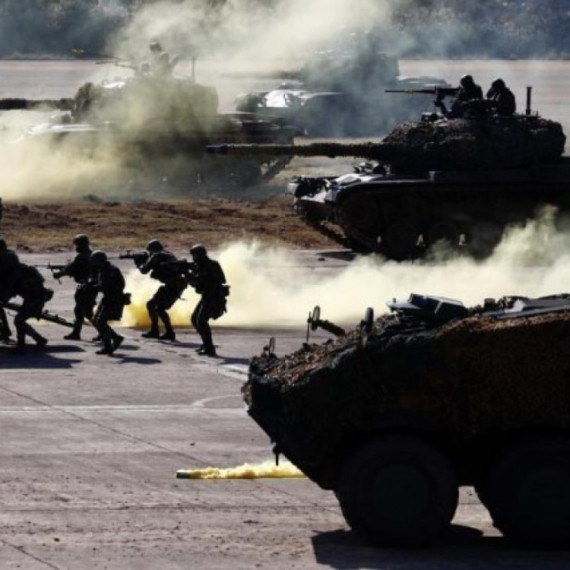
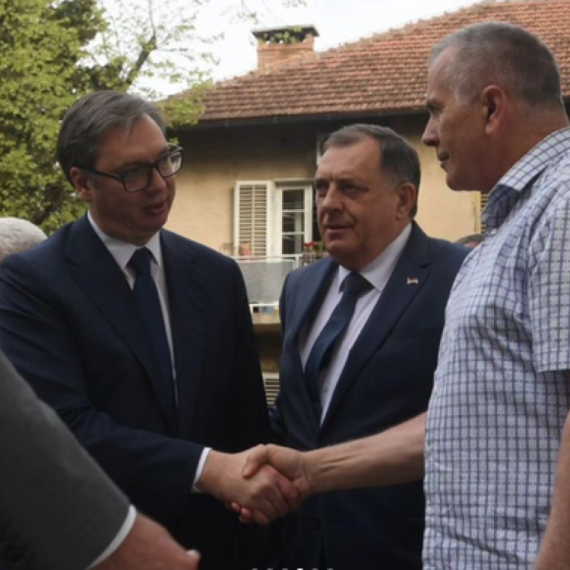



















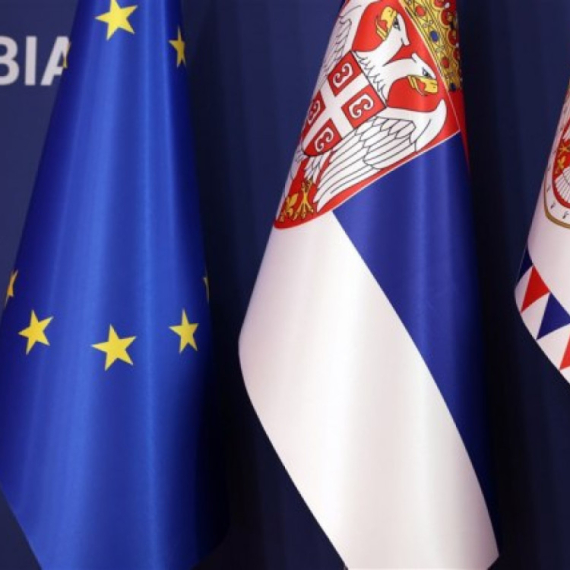
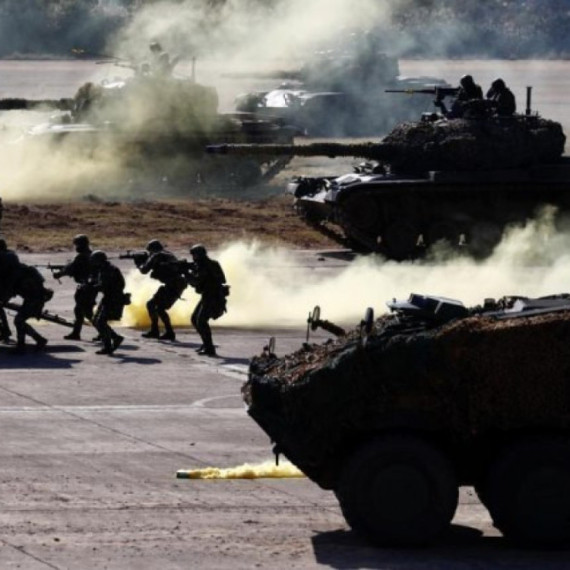
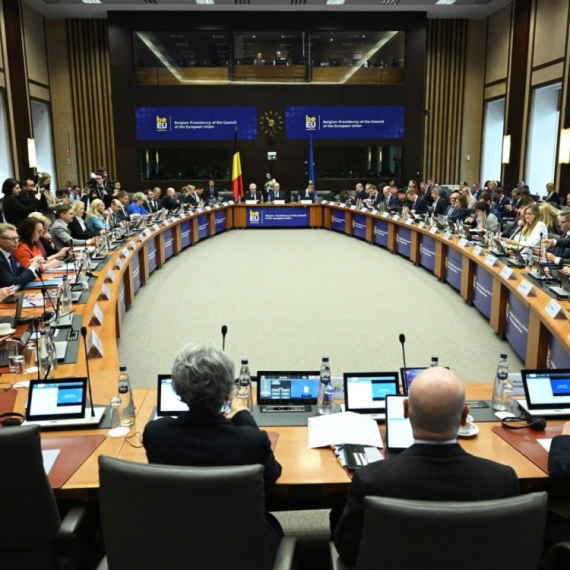
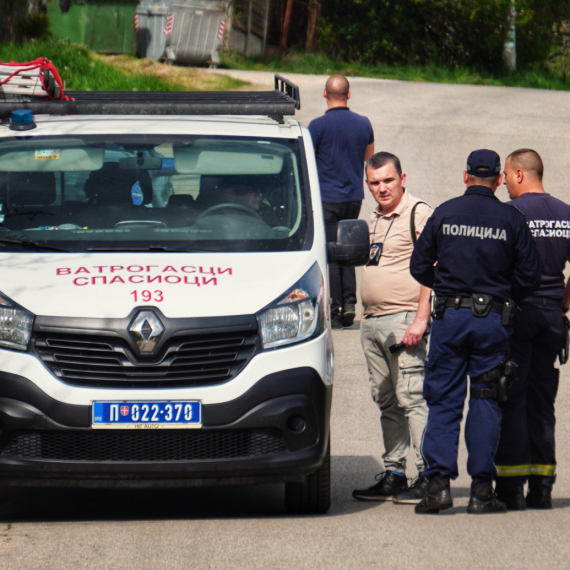
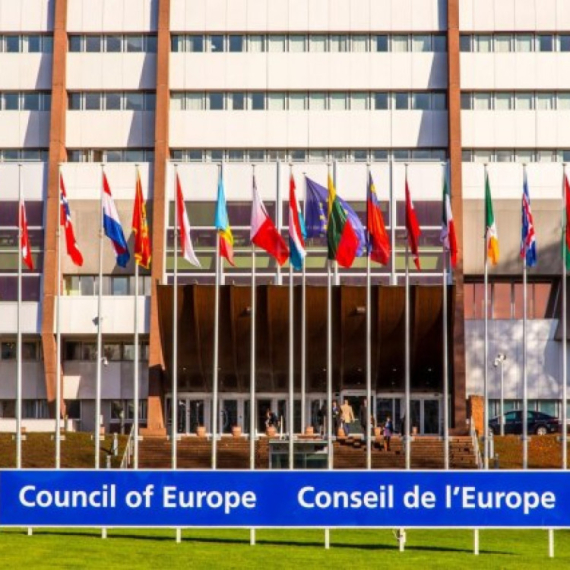







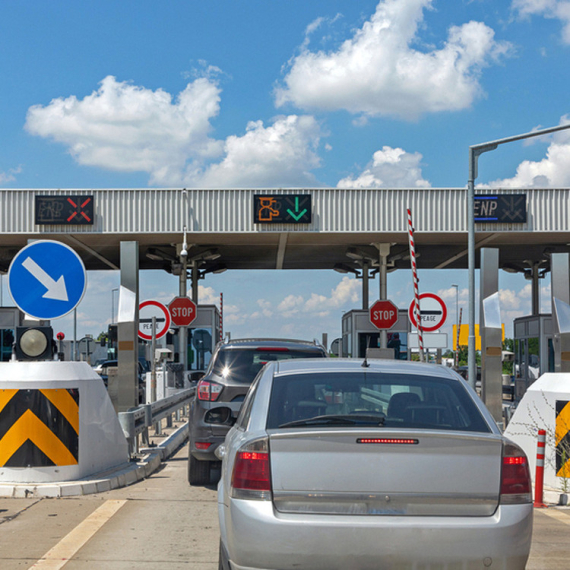








Komentari 33
Pogledaj komentare